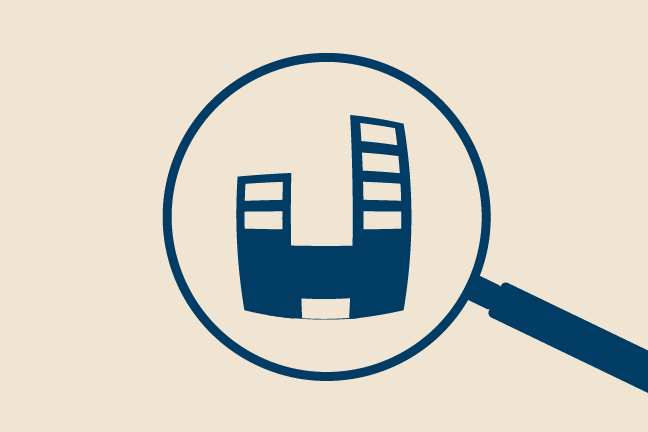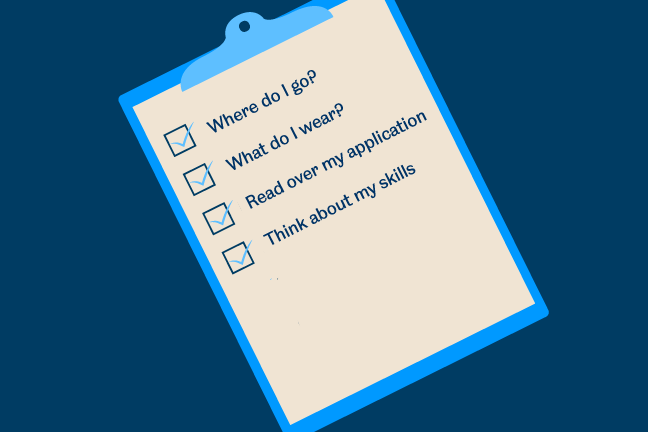
If you are offered an interview it means all your hard work has paid off and you have made the leap from applicant to real contender. You are likely to be pleased but also a bit apprehensive.
Most people react to the news of an interview with some degree of anxiety. Interviews are often regarded as stressful because there’s a lot at stake. There’s also an element of uncertainty and, as human beings, we naturally become nervous when faced with a situation we aren’t in control of.
Possible concerns you may have about interviews include things like:
- What should I wear?
- Who will interview me?
- How can I deal with interview nerves?
- What sort of questions will they ask me?
- What if I can’t think of something to say and make a fool of myself?
- What questions should I ask them?
But remember, there are lots of positive messages to be drawn from the prospect of an interview:
- Your application was good enough to get you to interview.
- On paper, the selector believes you may have the necessary requirements – now you can convince them!
- It’s an opportunity to find out more about them, and decide if you want the job or course.
- You’ll get valuable interview practice that will be of help in the future.
With a little thought, you can anticipate most of what will come up in the interview - and this course will help you to do just that!
Do we all have the same anxieties about interviews? Click on the launch button below and complete this survey on the things that concern you about interviews and find out.
What concerns you about interviews?
Remember that at this stage, the people who want to interview you see you as a strong prospect. They want you to be successful, look forward to meeting you and know that you are likely to be nervous.
At the start of the day, your interviewers will be looking forward to talking to enthusiastic and able candidates and to recruiting promising people. They want to be impressed and get a feel for how well you will fit in. There is nothing worse for interviewers than to spend a whole day interviewing and have nothing to show for it. So use the interview to make their task as easy as possible by being friendly and ready to talk about yourself.
Regardless of their level of experience, interviewers will be ‘matching’ you to the criteria they have established for the job or course. This is no mystery; you have already done this in your application and have met their requirements.
Interviewers are human beings too and will understand just how anxious candidates can be and will make allowances for this. So don’t panic if you have a memory lapse or if you stumble over an answer occasionally. You may be nervous at the start of the interview, but you will probably find that your nerves are controllable and subside as the interview progresses.
In an ideal world your interviewer will be highly trained, experienced, and a good judge of character. In reality, your interviewer may be some or none of these things. Whoever you are confronted with, it is up to you to adapt to the situation.
Most interviews are challenging and you will need to demonstrate evidence of your motivation, thinking and communication skills. But they are also designed to give you an opportunity to talk about why you are right for the job or course. By preparing for it, you should be able to take full advantage of that opportunity.
The practicalities
Preparation is the key to a successful interview so don’t overlook the practical details or leave things to the last minute.
- Make sure you know where to go and how long it will take to get there. Aim to arrive at least fifteen minutes early.
- Decide what you are going to wear beforehand and try it on for comfort
- Do your revision. Read over your application and think about the questions that you might be asked.
- Take a copy of your application or CV, and if required, examples of your work.
- If you can, try to find out about the format of the interview, how long it will last, and who will be interviewing you.
- If you are making a presentation take a copy along on a memory stick and hard copy handouts.
- Think more deeply about yourself, the role or course, and the organisation or institution you are applying to.
Most of us experience some nerves in the run up to an interview but if you have prepared thoroughly and retain a genuine interest and enthusiasm for the job or course, then you will have done your best - and that’s all you can really do!
Making your research count
You should have done some research before you wrote your original application but this is something you need to revisit and do in more depth.
You would be amazed how many candidates turn up for interview not knowing what the organisation or institution does or what the job or course involves - and what a bad impression this creates!
Try using the web, relevant journals and other media to find out as much as you can about the place where you will be working or studying. If the interview is for a job or a vocational course, you should research the employment sector you hope to enter and the current issues facing the profession.
You can find out a lot about a potential organisation or institution through their social media channels such as Facebook, Linkedin and Twitter. Look up the name and go online to find out what they’re doing.
How do they present themselves? What news have they been sharing? These things are important to them, so they’ll be impressed if you mention them in your interview. It shows you’re serious.
To summarise, if you are to be interviewed for a job you should understand:
- the services or products the organisation deals with
- the organisation’s aims and values - what does it say in its ‘mission statement’?
- how you will fit in with its values. Can you identify its culture?
- who its clients / customers are
- who its competitors are and how the organisation compares to them
- if the organisation has been in the news recently and why?
Researching an institution
If you have applied for a course, you may be invited for an interview, although this varies between departments and at different universities or colleges. If you have applied to do postgraduate research you will almost always be invited to interview.
Before you attend, you should understand:
- the institution and department that you wish to join and its strengths
- the aims and values of the institution - what does it say in its ‘mission statement’?
- how you will fit in with its values. Can you identify its culture?
- the key areas of research currently being undertaken or the structure of the course
- the types of careers that students progress on to after completion
- if the institution has been in the news recently and why?

Research an organisation or institution
Pick an organisation or institution that you’re interested in and do some research. If you can’t think of one, try searching for The Sheffield Children’s Hospital or The University of Sheffield.
Now imagine an interviewer has asked you:
“What do you know about our organisation / institution?”
How would you reply to make a positive impression, based on your research?
Once you have posted, comment on the answers of others.






0 التعليقات:
إرسال تعليق